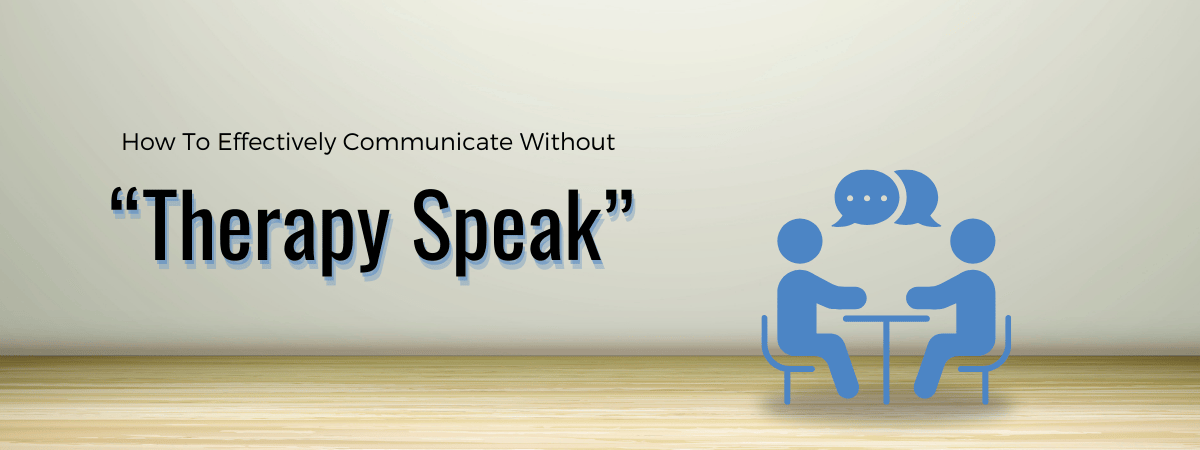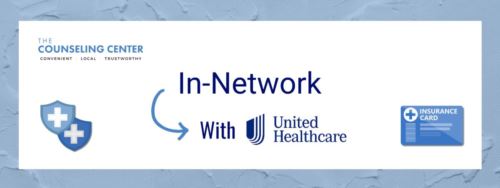

Why You Ought To Stay Away From Therapy Speak In Everyday Conversations
There’s been an increased emphasis on mental health over the past many years, shifting once-taboo topics into public discourse. While this shift is admirable, it has also introduced a complication that can obstruct valuable discussions: "therapy speak."
This type of language is overused, misunderstood, and taken past its original intent by unqualified individuals in daily situations and on social media platforms like Instagram, TikTok, and more. Learn more about what therapy speak is, how it impacts people, and explore tips on discussing mental health treatment in a more constructive manner.
What Is Therapy Speak?
Therapy speak is a reference to utilizing psychological terms, often taken from counseling sessions, in daily discussions. Words and phrases have moved out of professional medical contexts and become widespread in hashtags, headlines, and, regrettably, frenzied arguments between loved ones.
When these terms are used improperly in everyday discourse, they can become a means to evade more beneficial dialogue and harmfully misinterpret complex emotions. What could be beneficial conversations often stop abruptly with lasting negative implications, as people with no experience or authority could improperly diagnose themselves or others they care about.
Here are a few cases of therapy speak:
- “I’m setting a boundary,”
- “That’s triggering for me,”
- “Are you doing the work?”
- “Is it a safe space?”
- “Maybe you’re processing your trauma.”
While these expressions can be worthwhile within a professional context at a licensed facility like The Counseling Center, they are often unsuitable in everyday discussions.
Therapy Speak Can Diminish Genuine Conversation
At TCC, we support integrating mental health practices into everyday life. But, we also acknowledge the potential drawbacks of using medical or specialized language in daily life. Engaging in therapy speak can weaken the actual intent of discussions, putting up hurdles instead of fostering connection and understanding. We find people frequently turn to therapy speak as a shield.
There might be a sense that therapy speak can’t be disputed because it mimics what you might experience at a treatment facility. Yet proper dialogue depends on active listening, shared understanding, and empathy.
The Affect of Therapy Speak
1. Diminishing Real Connections
An overuse of therapy speak can make conversations feel detached or transactional, stripping away the emotional warmth that promotes authentic connection. It can “therapize” family discussions, converting meaningful heart-to-heart dialogue into what could sound like a 20-second reel created by a psychologist on TikTok.
For instance, expressing to a loved one, “I need to hold space for myself right now,” may feel formal and distant compared to just verbalizing, “I’m feeling stressed and need a bit of time to think things over.”
2. Misunderstanding and Misuse
Therapeutic phrases have precise meanings within proper contexts. Misapplying words like ”narcissistic” or “bipolar” not only diminishes their true significance but may also continue stigma around mental health conditions. Individuals try to label others instead of listening and creating time for real conversation.
The Counseling Center supports thoughtful language that honors the weight of words used in clinical settings, as long as they are not misused or weakened in daily discussions. We’ve discovered that therapy speak typically sows confusion, with countless phrases employed improperly. This language can act as a shield to protect us from guilt, judgment, or obligation.
3. Dodging Accountability
While concepts like self-care and setting boundaries are significant, therapy speak is often misused to shift responsibility or eschew accountability. To illustrate, stating, “I’m protecting my boundaries,” to justify harmful behavior can undermine the trust and honesty required in healthy relationships. There are always fresh words to justify self-serving or even antagonistic behaviors. The phrase “boundaries” has become specifically irksome to mental health therapists.
You now hear therapeutic phrases used when people just refuse to do something. In light of all the arguments that follow, you might ask if your “boundary” has more significance than your personal relationship.
How to Effectively Communicate Without Therapy Speak
We feel genuine dialogue shouldn’t rely on clinical terminology. Rather, it’s about being honest, clear, and kind. Our counselors have a few other practical tips to help:
1. Speak From the Heart
Emphasize how you feel in lieu of using buzzwords when expressing emotions. For instance:
- As opposed to: “You’re gaslighting me.”
- Try: “Whenever you say that, it makes me feel like my point of view isn’t being valued.”
2. Emphasize Understanding
Try to listen attentively instead of labeling behavior. Phrases like “Help me comprehend where you’re coming from” promote productive dialogue.
3. Be Aware of Your Audience
Note that not all individuals are familiar with professional terms. Choosing clear, easy-to-understand language ensures your message resonates more effectively.
4. Use Boundaries Sparingly
Boundaries are vital, but they should be expressed carefully. In lieu of: “I’m setting a boundary.” Try: “I need to step back from this conversation for now so I can think clearly.”
Therapy gives you strategies, not jargon-filled scripts. Counselors at TCC regularly reflect on how you’re applying what you’ve been taught to ensure it boosts, rather than diminishes, your relationships.
How The Counseling Center Helps Foster Better Communication
At The Counseling Center, we strive to equip individuals with the tools they need to navigate their mental health condition while developing stronger relationships. Our services include:
- Individual Therapy: Private sessions to strengthen self-understanding and boost emotional intelligence.
- Family and Couples Therapy: Helping loved ones connect more beneficially and address disputes constructively.
- Group Therapy: Providing a safe space for genuine communication in an encouraging setting. Our professionals promote useful, everyday applications of therapeutic ideas, ensuring you can connect meaningfully with others without relying on jargon.
Request Skilled Mental Health Support Today
If you want to deepen your self-awareness and elevate your relationships, we’re standing by to help. Learn more about our intensive outpatient and outpatient support. If you require help right away, please contact our 24/7 hotline at 833-248-6271. Working together, we can equip you to communicate with empathy, purpose, and clarity—without sacrificing the essence of who you are.



